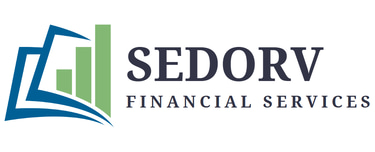Storytime! The Sandwich Lady's Lost and Found
The sandwich lady is a local staple in town. She is selling plenty of food but feels like she never has enough money to build her business. She isn't even paying herself. What is happening!?
Wendy Orvis
7/12/20253 min read


The Sandwich Lady’s Lost and Found
A Small Town Tale About Finding Financial Clarity
In a quiet corner of a small town, just off Main Street, there’s a little shop with a bell over the door and the smell of fresh bread drifting onto the sidewalk. Everyone knows her as The Sandwich Lady.
Her name is Miss Carla, and she makes a mean turkey club.
Carla opened her shop a few years ago, pouring her heart into it. Her customers loved her food. Every weekday, the same familiar faces came in for lunch—some ordered “the usual,” others tried her daily specials. By all appearances, business was good.
But behind the counter, Carla was anxious.
She was selling sandwiches every day—plenty of them—but her bank account always seemed empty. She wasn’t taking a paycheck for herself, and last month she nearly missed the lease payment on her shop.
She tried to keep her receipts in a shoebox. She glanced at her bank app now and then. But none of it really made sense to her, and she didn’t know what to fix.
The Wake-Up Call
One day, a longtime customer asked, “Miss Carla, have you ever talked to someone at the Small Business Development Center?”
“I make sandwiches,” she said with a shrug. “Not spreadsheets.”
But later that week, with a little nudge from that same customer, she scheduled a free appointment.
The Eye-Opening Meeting
At her first meeting with the SBDC business consultant, Carla brought in a spiral notebook filled with notes, prices, and crossed-out menu ideas.
The consultant gently helped her walk through her real costs—the bread, the meats, the sauces, the paper, the soda cups, even the napkins.
Together, they built a basic spreadsheet. That’s when Carla saw the problem.
For every $6 combo meal she sold, she was losing 73 cents.
Inflation had crept up, but her prices hadn’t. She was paying more for turkey and tomatoes, but hadn’t adjusted her menu in two years. And she never included utilities, rent, or her own paycheck in the pricing math.
The Turning Point
Miss Carla left that meeting stunned but hopeful. She finally understood why things felt so hard. But knowing she needed to change didn’t mean she suddenly had all the answers.
“I need help,” she said out loud on the walk back to her shop.
“Not just at tax time. I need someone who can explain this stuff to me… in plain English.”
That’s when she found a new bookkeeper—one who didn’t just drop off reports at the end of the year, but actually sat down with her each month.
Together, they cleaned up her records, categorized her expenses, and set up a simple dashboard to track her numbers. She learned how to see which sandwiches made the most profit and how to set prices that kept her business sustainable.
The Win
A few months later, Carla wasn’t just surviving. She was sleeping better at night. She paid her bills on time.
She started taking home a paycheck.
And—something she hadn’t imagined before—she was able to hire a part-time helper to keep the shop running during busy lunch hours.
The Sandwich Lady had found more than a way to keep the doors open.
She’d found clarity. Confidence. And a future she could finally see.
What You Can Learn from Carla
Maybe your business isn’t a sandwich shop. But if you’ve ever felt like you’re working nonstop and the money still doesn’t make sense, you’re not alone.
Here’s what Carla would tell you:
Know your real costs. Don’t price blindly.
Ask for help. You don’t need to figure it out alone.
Find someone who will teach you, not just talk at you.
At Sedorv Financial Services, we believe small business owners deserve a clear understanding of their numbers—and a guide who will walk alongside them.
Need Help Like Carla Did?
We’re here for you. Let’s start with a conversation, not a spreadsheet.
Subscribe to our blog or reach out to schedule a free intro session.
Because knowing your numbers isn’t just good for business—it’s good for you.
